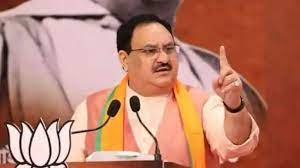The narratives of local authors are rich in detail: Purnima Tammireddy, an author
Purnima Tammireddy, whose story resonates with that of many Indians, claims she was “kept away from books” and told to concentrate only on the curriculum. During my early years, I was deprived of reading materials. I couldn’t purchase books and begin reading till I finished my engineering degree,” the woman said.
In 2008, Tammireddy launched a blog as the first step in her writing career. She started pustakam.net, a book review website. She went on to write novels after 14 years of running the website. She wrote the short story collection “Emotional Pregnancy” in 2022. She also began translating Manto’s writings into Telugu nine years ago. The Telugu film “Siya Hashiye,” also known as “Vibhajana naati Nettuti Gayaalu,” was released in 2022.
“I decided to go further into Manto’s writings, defying the traditional norm in the Telugu publishing business of selecting an author’s most well-known works and translating them. I read through all of his works on the partition and examined his perspectives on community violence from the early 1930s to the end of his life. Tammireddy said, “I’ve gathered all the essays, short stories, and microfiction related to that and created a themed collection.”
She said it is hard to persuade publishers to embark on the monumental undertaking of translating a large body of work such as Manto’s. In 2022, she founded her own publishing business, Elami, in response to this challenge. She said, “I wanted to preserve the freedom of articulation.”
Under this umbrella, Emotional Pregnancy, Pinjaram, and Siya Hashiye were released. “Hamid Dalwai Kathalu,” another piece, was launched on February 14 at the Hyderabad Book Fair. It was translated into Telugu in collaboration with the Yali Project, which is headed by Arshia Sattar. Twelve tales authored by Marathi author, activist, and social reformer Hamid Dalwai are included. In the presence of Volga, the translator, Dr. Vempalle Shareef gave the book its release.
In response to a question about her proficiency in translating from other languages into Telugu, she said, “Manto’s work and its criticism is not available in Devnagri script easily, at least not in the public domain.” I thus had to know a lot about Urdu. Although Amrita Pritam wrote in Punjabi, Pinjar was also published in Hindustani in 1956, during the author’s lifetime. We have used this Penguin publication, which has the blessing of Amrita Pritam’s estate. Volga had to read the English translation of Hamid Dalwai’s tales, she said.
She continued by saying she asked Punjab University students and other professionals for help in appropriately translating allusions from Punjabi folklore and culture. It is imperative essential we comprehend that certain aspects of that era alluded to a combination of various things. She remarked, “I had to enlist the assistance of the elderly who could recognize these folk tunes and give me an explanation.
She remarked, “There is a richness in our writers’ way of storytelling that is not influenced by the Western styles,” highlighting the importance of regional writing. A someone like Manto, who lacked formal training, wrote tales that captured the spirit of the era in which he lived. He brought attention to the precarious living circumstances of people at a time when history was being written. In the same way, Hamid Dalwai is a stunning addition to our collection. Dalwai starts where Manto finishes. Dalwai talked on post-partition eventualities, while Manto wrote about pre- and during-partition circumstances. He discussed the mass forced migration to Bombay in the 1950s and 1960s, how these individuals saw the city, and how they handled the socioeconomic conditions of the period.
Released during the Hyderabad Book Fair, Hamid Dalwai Kathalu was translated into Telugu in collaboration with the Yali Project, which is headed by Arshia Sattar.
Released during the Hyderabad Book Fair, Hamid Dalwai Kathalu was translated into Telugu in collaboration with the Yali Project, which is headed by Arshia Sattar.
She also mentioned that because Telugu has a larger market reach and is more adaptable than English, it is sometimes thought to be simpler to translate literature from English into regional languages and vice versa. However, she thinks that for many people, Telugu has a personal significance that makes it more important than other languages.
“I vehemently disagree with the notion that English is becoming the dominant language in our society, since I see it to be a privileged or elitist viewpoint. For the purpose of their livelihood, many individuals have studied English, but when they want a tale, they want it in Telugu. They identify with the language in that way. As a publisher and translator, it is very important to me to deliver these tales into Telugu,” she said.
Her ongoing initiatives include translating the autobiography of Telangana Arms Movement leader Mallu Swarajyam into English; she is also working on translating books on common technology and mental health as well as Hindustani, Kannada, and English into Telugu.







